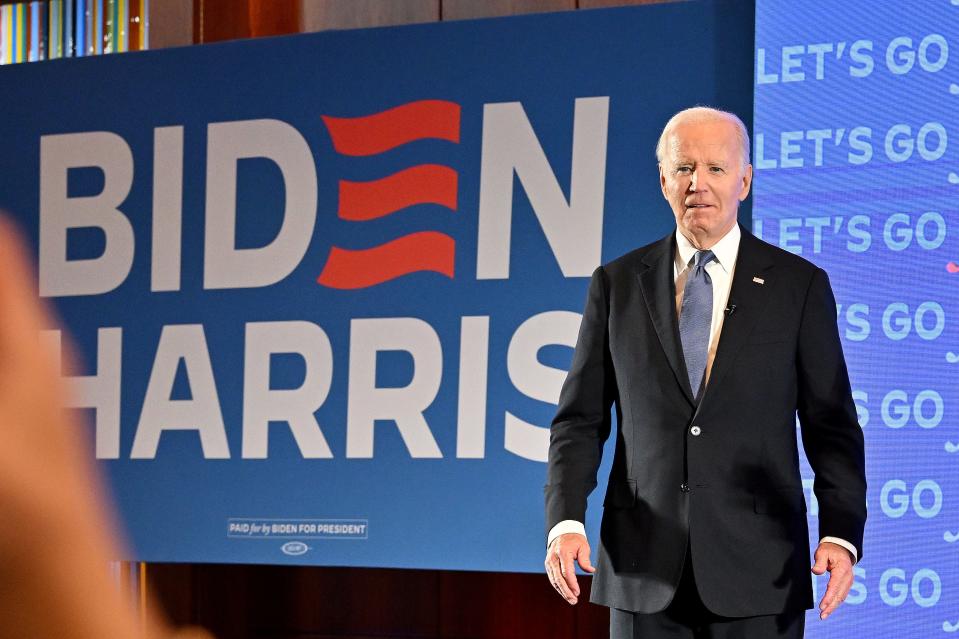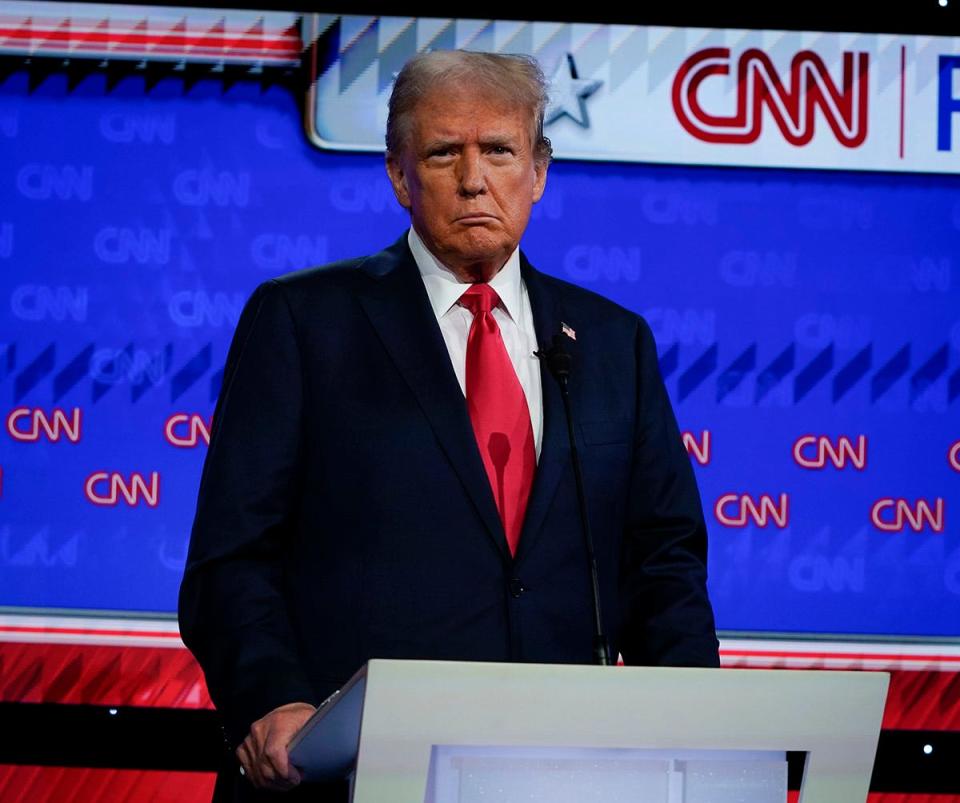Candidates have survived bad debates. But is a reckoning afoot after Biden v. Trump?
President Joe Biden and his team wanted to hold an early debate to shake up the presidential race he was trailing in and to counter concerns about his mental acuity.
That was not the debate they got Thursday night.
Instead, the president's voice was raspy and his answers halting in a performance that fueled worries about his age, not settled them. He unnerved even some Democrats who support him and raised questions about the future of his candidacy.
Meanwhile, former President Donald Trump hammered Biden, turning even questions about the national debt and drug addiction to his favored issue of illegal immigration. The Republican candidate unfurled a series of unsubstantiated accusations against Biden and recast his own record, asserted with confidence even when he was at odds with the facts.
Sometimes it's hard to call a winner and loser in a debate. Not this time.
Candidates have survived bad debates before. In their reelection campaigns, both Ronald Reagan in 1984 and Barack Obama in 2012 faltered in the first debate and recovered in the next one.
Biden does have another debate on the calendar, on Sept. 10 on ABC. But chatter erupted on cable TV and in political corridors Thursday night about whether someone else should and could be nominated at the Democratic National Convention in August − a step that under party rules probably could happen only if Biden chose to withdraw.
It is a step that has never happened this late in the process, not in modern political times.
The power of the mute button
Trump got low grades from independent fact-checkers who detailed falsehoods about everything from downplaying his role on the Jan. 6 insurrection to overstating expert assessments of his economic record and presidential legacy.
But the debate rules designed to curb Trump ended up helping him.
Call it the power of the mute button.
In the 2016 and 2020 campaigns, Trump's constant interruptions disrupted and derailed the debates, frustrating his opponents and hurting his own image. To prevent that this time, at the urging of the Biden campaign, the candidates' microphones were turned off when their designated time had expired, silencing them to millions of Americans watching on TV.
Trump, whose campaign operations have been more disciplined in 2024, was also more disciplined on the debate stage, abiding by the time limits although he often didn't respond to the question he had just been asked.
In contrast, Biden failed to show the strength and spark he displayed at the State of the Union address in March and in the national debates he has been participating in since his first bid for the presidency in 1987. He had spent days in seclusion at Camp David preparing for this one. Yet he rarely delivered crisp, compelling answers, though he fared a bit better as the end of the debate neared.
The president only occasionally effectively challenged inaccurate assertions Trump made. Debate moderators Jake Tapper and Dana Bash, who had said beforehand they would be facilitators and not participants in the debate, did no fact-checking on the fly.
Even in his closing statement, the most scripted moment of the debate, Biden meandered. He failed to mention two of Trump's greatest vulnerabilities, his criminal conviction and his role in making Supreme Court appointments that led to the overturning of abortion rights. He briefly seemed to lose his train of thought.
"Give people a break," he finally said.

No second chance to make a first impression
This debate was never going to be the opportunity to make a first impression.
Debates have sometimes done that in the past, especially in a contest with an incumbent. In 1980, Reagan's buoyant confidence combatted the critique that he was just an actor, and too conservative for the country. In 1992, Arkansas Gov. Bill Clinton overshadowed the impression left by scandals during the primaries with an earnest empathy with those in a town-hall audience.
But Biden and Trump are now the two best-known politicians in the world. For the past 16 years, either Biden or Trump has been president or vice president. Whichever candidate wins in November, that record will stretch for another four years − for two decades, for a generation.
After four years each in the White House, Americans' views of their qualities and their quirks have been set in political concrete.

The debate did give Americans a chance to see them side by side for the first time since their 2020 debate, standing just 8 feet apart. Their contempt for each other was apparent from the start, when they didn't shake hands.
Both of them looked older than they did in the last campaign, though it was Biden who especially showed the wear and tear common to many presidents.
Both looked warier, too.
So are the voters this time.
This article originally appeared on USA TODAY: Biden v. Trump: Debate reinforces concerns about the president's age


